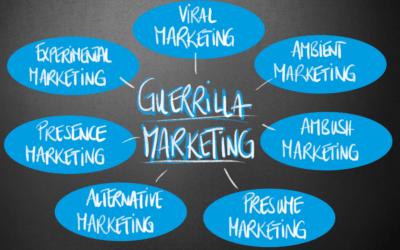AI in Content Marketing: The Human Factor
Ok, ok! Another blog about AI. But in the content business, AI is the biggest thing on everybody’s mind, and I think it will be for a while.
Artificial Intelligence (AI) is revolutionizing the way businesses approach content marketing. We can no longer debate that. In our field, tools powered by AI are helping writers generate ideas, draft copy, analyze performance metrics, and accomplish much more, faster, and with greater efficiency. All that is true.
But so far, AI still can’t replace the human element in brand communications. For organizations with a unique and specific intent in the world, a serious point to make, each public communication is a personal message, delivered to a specific group of people.
If your message is meant for people and not “publics” or “stakeholders,” then AI-generated content will get you just so far. You’ll still need human beings, people who can write, on your marketing team. Data from industry experts like Content Marketing Institute, Neil Patel, and Blog Marketing Academy backs this up.
How is AI impacting content marketing? Let me count the ways!
The Efficiency of AI: What the Numbers Say
AI tools can dramatically streamline the tactics involved in content marketing. According to the Content Marketing Institute, “Seventeen percent of B2B marketers rate the quality of the content generated by AI as excellent or very good. Forty-four percent say it’s good, 35% say it’s fair, and 4% say it’s poor.”
Generative AI programs like ChatGPT or Jasper can draft blog posts, email campaigns, and even video scripts in a fraction of the time it takes a person to do the same thing.
Neil Patel’s blog highlights that businesses using AI for content creation often report a 30-50% reduction in production time. For small business owners who have to juggle multiple roles, these efficiency gains are no small thing.
But speed and cost savings are just one part of the equation. The same tools can analyze performance data to optimize campaigns, tweak headlines, or improve your targeting.
However, while today’s AI can improve a business’s efficiency and upgrade its analytics, its output is not the kind that sustains people’s interest and attention. Data might suggest a topic or phrase that works broadly, but it’s the human connection—empathy, creativity, and a deep understanding of the audience—that turns generic ideas into impactful messaging.
The Risks of AI Overreliance
For all its advantages, AI has its limitations. Relying too heavily on AI for content creation can backfire in significant ways. One of the most common pitfalls is producing content that feels generic or impersonal. Increasingly, consumers can distinguish between AI-generated and human-written content, and 54% say they’re less likely to trust a brand that relies exclusively on AI.
Our primary concern with AI is that overreliance on the technology will make our clients just like their competitors. Many businesses using similar tools and datasets often end up producing eerily similar content. This lack of differentiation can hurt your brand’s ability to stand out in a crowded market. Consumers value originality and authenticity, and AI—as sophisticated as it is—can’t replicate the unique voice or mission-driven storytelling that makes your brand memorable.
There are also concerns around AI’s struggles with cultural context, humor, or emotionally charged subjects—the elements that forge strong connections with your audience. Content Marketing Institute stresses the importance of blending AI with human oversight to avoid embarrassing missteps or tone-deaf messaging. None of us wants to churn out content that inadvertently reinforces stereotypes or misses key audience sensitivities.
Why the Human Element Still Matters
The public communication organizations craft is not just about producing material. More than anything, it is about building trust and fostering relationships. This is where the human touch becomes indispensable. Content that includes personal stories or a distinct brand voice outperforms generic content in almost all engagement metrics.
Brand marketers know the importance of authenticity in brand communications. AI can suggest what’s trending or offer keyword insights, but only a human can craft narratives that reflect your brand’s core values and connect emotionally with your audience. For example, a generative AI might write a grammatically perfect blog post. However, it won’t know how to weave in the personal anecdotes or cultural nuances that resonate with your readers.
Blog Marketing Academy suggests using AI as a co-creator rather than a replacement. Consider letting AI handle the heavy lifting of research, drafting, or data analysis. Rely on humans to refine the tone, inject creativity, and ensure the message aligns with the brand’s identity.
Striking the Right Balance: AI and Human Collaboration
The key to leveraging AI effectively in content marketing is balance. Use AI for what it does best—speed, efficiency, and data-driven insights—while reserving the strategic and creative elements for human experts. Content marketers agree that the best results come from an approach that combines AI tools with human input.
A practical framework for integrating AI into your content strategy might be to start with AI-generated drafts to save time, then refine the content by adding unique examples, anecdotes, or expert opinions. Ensure the final output aligns with your brand’s voice and values. This approach improves efficiency and ensures the content feels authentic and tailored.
Blog Marketing Academy offers another tip: involve your team in the process. Even if you’re not a content marketing expert, collaborate with those who are. They can use AI tools to generate ideas or analyze data while you contribute insights about your customers and brand story. This partnership creates content that is both data-informed and deeply personal.
Finally, don’t forget to monitor and adapt. AI is a fast-evolving field, and its tools are constantly improving. Keep experimenting, learning, and fine-tuning your approach to stay ahead of the curve.
AI has undoubtedly transformed content marketing, making it faster, more efficient, and data-driven. But as powerful as these tools are, they can’t replace the human creativity and authenticity that make your brand unique. By combining the strengths of AI with the irreplaceable human element, your business can create content that doesn’t just inform but inspires. And in today’s crowded digital landscape, that truly sets you apart.














